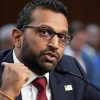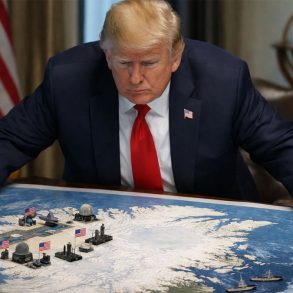Secretary of State Marco Rubio has issued a new directive that sharply curtails the long-standing U.S. practice of commenting on the fairness of foreign elections. Under this new policy, the State Department will no longer issue public statements about the integrity, legitimacy, or democratic values of elections in other countries unless there is a “clear and compelling U.S. foreign policy interest.” The memo, first reported by The Wall Street Journal, represents a major shift away from the traditional role the U.S. has played in promoting democracy abroad.
This move aligns with President Trump’s broader foreign policy vision, which emphasizes national sovereignty over ideological outreach. It also continues a realignment of diplomatic tools that has included cuts to programs like the U.S. Agency for International Development and the restructuring of global media outlets like Voice of America.
Focus on Interests Over Ideals
The memo signed by Rubio instructs embassies and overseas offices to limit their public messages to recognizing the outcome of an election, not the process by which it occurred. “Messages should avoid opining on the fairness or integrity of an electoral process, its legitimacy, or the democratic values of the country in question,” the directive states. Instead, diplomats are instructed to use election-related messaging only when it serves a foreign policy goal, not to promote democratic ideals.
A spokesperson for the State Department said, “The United States will hold firm to its own democratic values and celebrate those values when other countries choose a similar path.” However, the spokesperson added that “the President made clear that the United States will pursue partnerships with countries wherever our strategic interests align.”
The goal, according to Rubio, is to eliminate unnecessary interference in the internal affairs of sovereign nations. The memo advises diplomats to ask themselves a clear question before issuing any statements: “Would the president say it?”
Why the Policy Shift Matters
This change marks a deliberate break with past administrations, both Republican and Democratic, which frequently used official statements to condemn election fraud, support opposition movements, or pressure foreign governments to hold competitive elections. For years, U.S. embassies have monitored elections, often in cooperation with nonprofit organizations, and reported their findings publicly. These statements were seen as a way to encourage democratic reform and hold authoritarian regimes accountable.
In some cases, such as Venezuela’s 2024 election, the U.S. went so far as to declare the opposition candidate Edmundo González Urrutia as the legitimate president-elect, even though Nicolás Maduro claimed victory and refused to step down. While this boosted the international profile of Venezuela’s opposition, it also deepened the diplomatic standoff and raised questions about U.S. involvement.
Rubio’s directive suggests that such high-profile interventions will now be the exception, not the rule. Overseas missions may still congratulate winning candidates without high-level approval, but any statement that criticizes election processes—such as allegations of violence, suppression, or fraud—must go through senior leadership and will rarely be approved.
The memo reads, “Do use messaging on elections to advance a U.S. foreign policy goal. Don’t use it to promote an ideology.”
Supporters Say It’s a Smart, Necessary Change
Supporters of the new policy argue that the U.S. gains nothing by commenting on the elections of other countries. If the U.S. criticizes an election and the incumbent wins, it damages future diplomatic relations. If the U.S. supports an opposition figure who later loses, it opens the door to accusations of interference.
This is particularly dangerous in volatile regions where American statements can be seen as picking sides. Such actions can be interpreted as direct involvement in a sovereign nation’s internal affairs. In extreme cases, it could even be seen as an act of aggression.
As Trump explained in a May speech in Saudi Arabia, “The so-called nation-builders wrecked far more nations than they built, and the interventionalists were intervening in complex societies that they didn’t even understand themselves. They told you how to do it, but they had no idea how to do it themselves.”
Rubio’s approach reinforces the idea that the U.S. should focus on its own interests, not on reshaping other countries in its image. He and Trump are making clear that America is not in the business of choosing other nations’ leaders.
Critics Warn of Lost Influence
Not everyone agrees with the new strategy. Evelyn Farkas, executive director of the McCain Institute, said, “America’s adherence to freedom increased our global influence, led to the end of the Cold War and increased stability and prosperity for decades.” She believes that by stepping back from democracy promotion, the U.S. is ceding moral leadership.
Ned Price, who served as State Department spokesman under President Biden, said, “The United States has a perhaps unique ability to push other countries in a better direction, oftentimes empowering brave citizens attempting to do so on the ground.”
Human rights groups are especially concerned. Nicole Widdersheim of Human Rights Watch argued that “often it is the public in these situations that risk life and limb to speak out against unfair and noncredible elections. The U.S. Embassy may be the only entity able to shine a light on the bad and unfair processes.”
A More Realistic Foreign Policy
Despite the criticism, the change marks a return to realism in American diplomacy. It acknowledges that foreign elections are not for the United States to referee, and that moral posturing often backfires. America cannot demand democratic standards from every country and expect cooperation on trade, security, or other vital interests in return.
Rubio’s policy allows the U.S. to maintain relationships even with governments that do not meet Western democratic ideals, so long as those relationships are strategically important. It protects American diplomats from being drawn into political conflicts abroad and makes it clear that the U.S. respects national sovereignty.
This is not about abandoning values. It is about avoiding unnecessary conflicts and focusing on what matters most to the American people. As Rubio’s directive makes clear, the United States will still support democracy, but will do so in ways that serve its own interests first.
NP Editor: Considering the questions we have had about our own elections – and we are theoretically the best at elections – what right do we have to criticize others? And what advantage do we gain, if we are not willing to go in that other country and make a change? Election interference from outside is an act of war, no other way to think about it.







